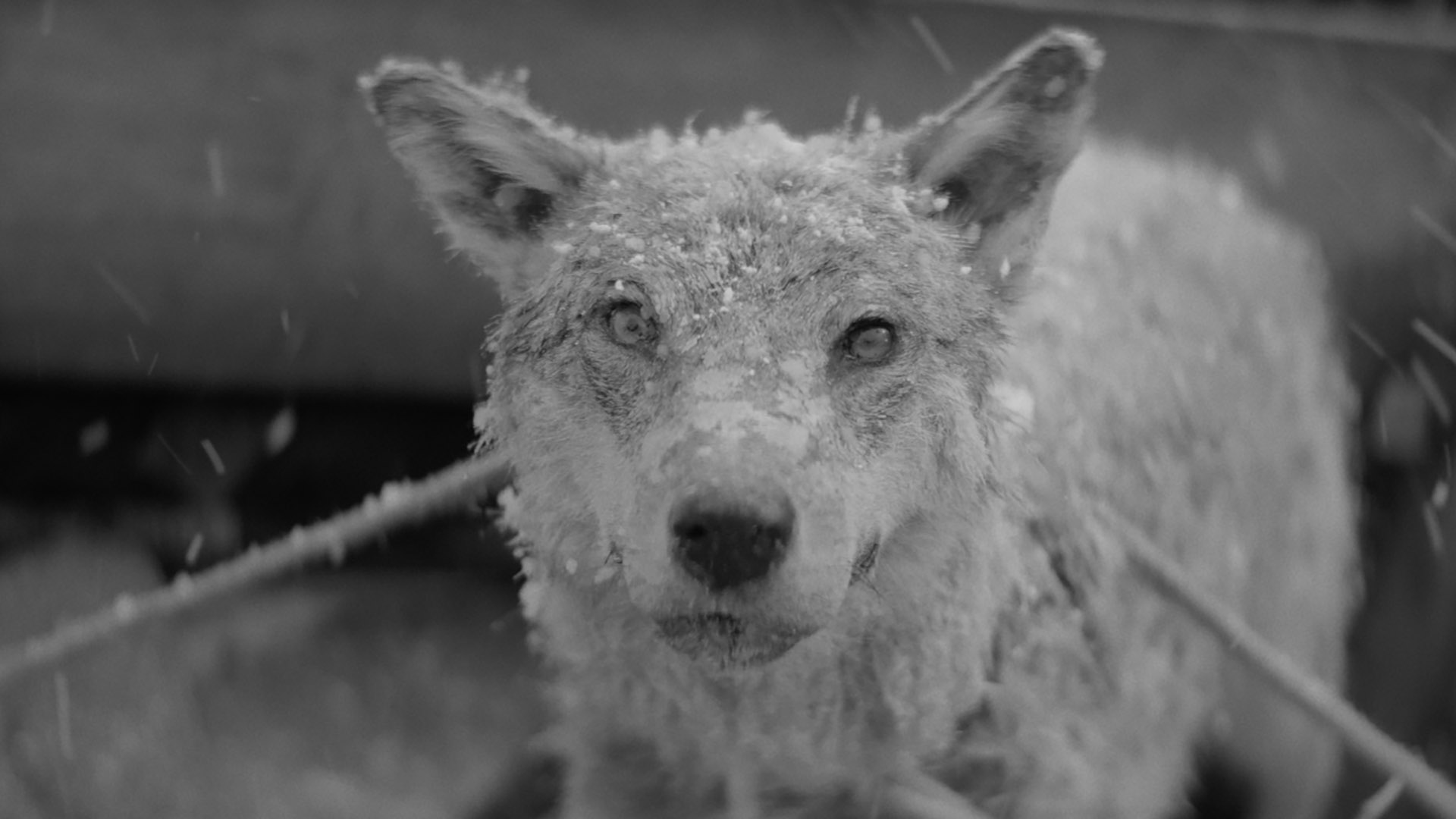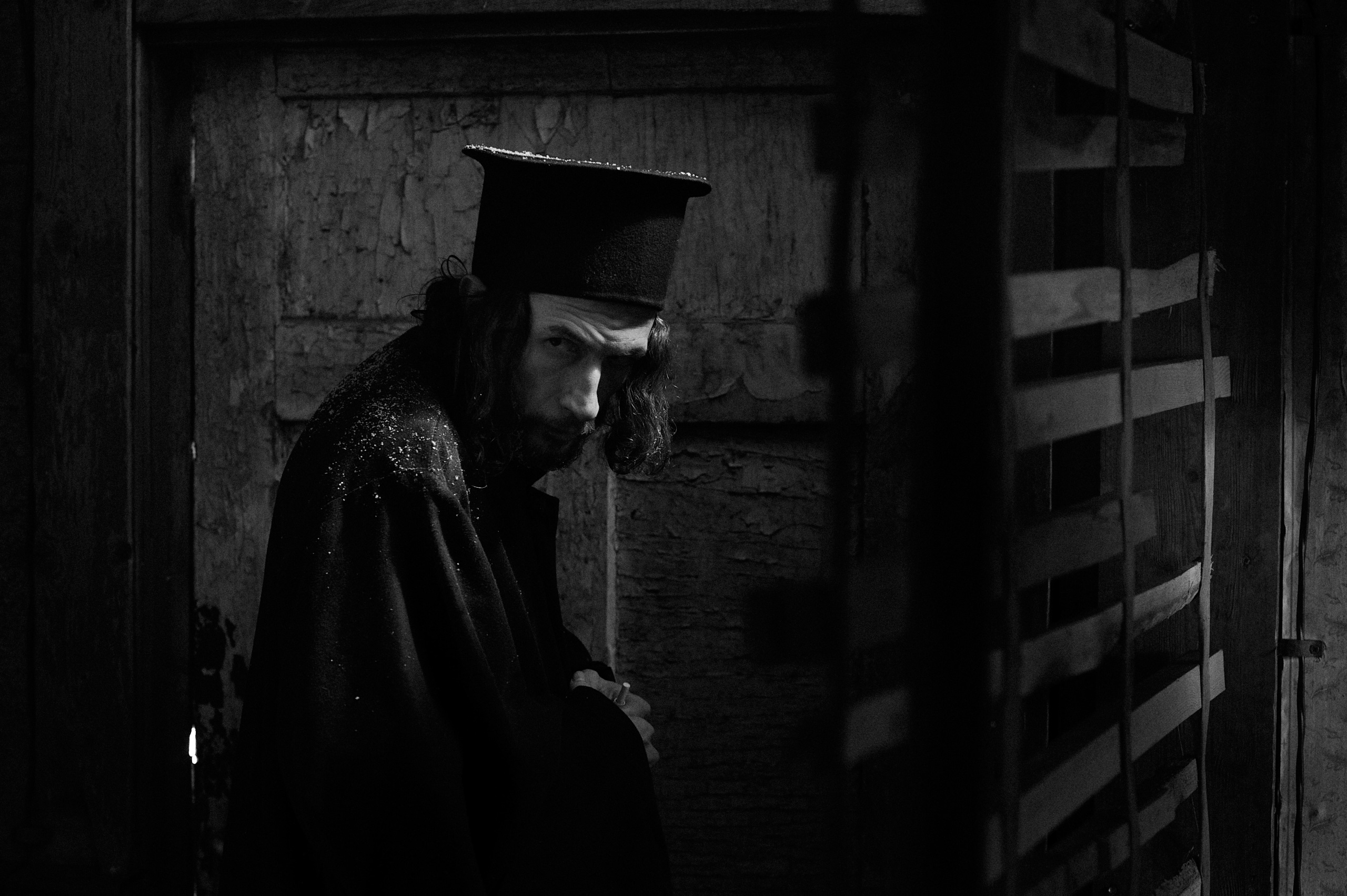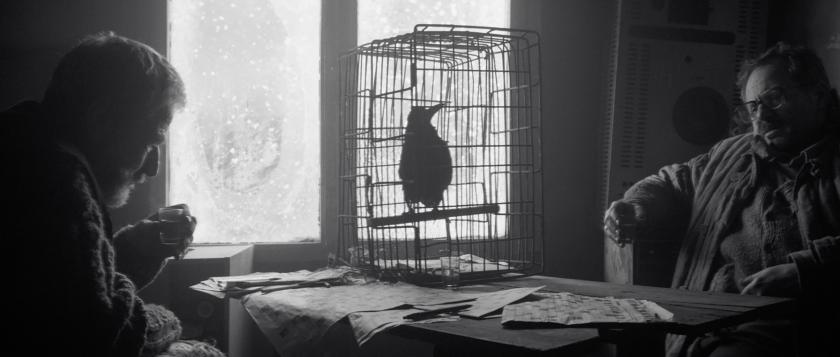At their best, horror movies reflect destabilisation caused by cracks in the social fabric. The crack indicated in the documentarist Andrey Paounov’s fiction debut January is the widening abyss that, one character fears, will swallow Bulgaria village by village, town by town; the entire world, he says, will eventually succumb to this state of waking death. Maybe it already has?
Doomy it may be, but Paunov’s allegorical folk chiller is also a joy – a playful grim fairytale that disturbs the imagination more than the viscera thanks to its evocation of haunted woods, barely seen, that symbolise the depopulating nation’s post-Soviet oblivion.
A Godot-like figure hangs over it. Petar Motorov, the unseen owner of a snowbound cottage compound deep in the hinterland, has headed for the city one morning on his horse-drawn sleigh – a journey taking him through the woods, where no one should travel in winter. Left in charge is a bespectacled middle-aged guard (Samuel Finzi), the film’s protagonist, who manages the compound’s power and machinery, including an old mechanical nutcracker. He expects Motorov to return, but he won’t if he’s one of the oligarchs who bought and abandoned ill-gotten state property during the post-Communism transformation process.
The guard keeps company with an old man (Iossif Surchadzhiev), who amuses himself doing crosswords and watching his caged crow empty glasses of rakia. When Motorov’s sleigh returns, it bears only his rifle and a dead wolf (pictured below), frozen on all fours. The guard brings it indoors.
 As the dread intensifies, there are comings and goings. The operator (Zachary Baharov) of a stranded snow-plough shows up with his masked brother and belligerently demands use of the compound’s tractor to extricate his vehicle. He sends his brother out to keep watch; another dead wolf, lashed like the first one to the back of the sleigh, returns in his place.
As the dread intensifies, there are comings and goings. The operator (Zachary Baharov) of a stranded snow-plough shows up with his masked brother and belligerently demands use of the compound’s tractor to extricate his vehicle. He sends his brother out to keep watch; another dead wolf, lashed like the first one to the back of the sleigh, returns in his place.
The next visitor is a worldly priest (Leonid Yovchev, pictured bottom) who gets off on threatening the guard and the old man with damnation; he insinuates that they murdered Motorov. Then comes the neighbourhood watch – would-be banishers of evil spirits and monsters – dressed in horned costumes like mummers. Their leader (Borislav Chouchkov), who has a disarming smile and a gold tooth, says they got lost in the fog. The priest insists they commandeer the sleigh.
The guard soon finds himself contemplating four dead frozen wolves. As for the old man, he learns the game’s up. The watch leader recalls burying him some winters ago. This corroborates the old man’s memory of waking in the knowledge he had been hanged, but not knowing whether his posthumous dream, in which he saw the compound's dog capering around, was dreamed by himself or by the dog. He now knows he appeared in the dog’s dream.
One has to concentrate to follow the film’s metaphysics – hauntings attributable to what the old man calls a tenetz, and is interpreted by the snow-plough operator as a plutenik, and by the guard as a vampire. “A tenetz is a tenetz,” insists the old man, who says one inhabits the crow, which appeared to him frozen in the forest and followed him home after he’d gone there to look for his own corpse. “You went to the woods?” asks his friend the guard, aghast.
The priest exudes both the German Expressionist malevolence of Emil Jannings’s Mephisto in FW Murnau’s Faust (1926) and – with his penchant for Motorov’s chainsaw – modern Hollywood’s camp horror. There’s a similar tension between absurdity and nightmarishness in January’s screenplay, adapted by Paounov and the English filmmaker Alex Barrett from Yordan Radichkov’s 1974 play, but neither dispels the other entirely.
 Edgar Allan Poe is in the details here: in the crow as a symbol of imperious Death holding dominion over all; in the “nice” Nepenthe-like drowse that the snow-plough operator perceives as a deadly epidemic; and in the notion of life lived as “a dream within a dream”, if not as a dog’s dream.
Edgar Allan Poe is in the details here: in the crow as a symbol of imperious Death holding dominion over all; in the “nice” Nepenthe-like drowse that the snow-plough operator perceives as a deadly epidemic; and in the notion of life lived as “a dream within a dream”, if not as a dog’s dream.
The dog is significant, though, showing up in a social realist propaganda painting of the angular compound building found among its detritus with portraits of Lenin, Brezhnev and Marx. This is a smart nod to the revelatory photograph that shows Jack Nicholson’s modern-day caretaker among the 1921 revellers at the Overlook Hotel in Stanley Kubrick's The Shining (1980).
Sadly, Paounov sacrifices the thrilling morbidity achieved by his actors, by Vasco Viana’s claustrophobic black and white cinematography, and by Ivo Paunov’s crepuscular soundtrack with a gratuitous version of The Shining’s bar scene shot in petroleum stain colours. The scene also weakens January as a visual and spiritual analogue of The Turin Horse (2012), Béla Tarr's monumental augury of creeping global desolation. No matter – its reputation will grow as a folk horror classic with polemical bite.















Add comment